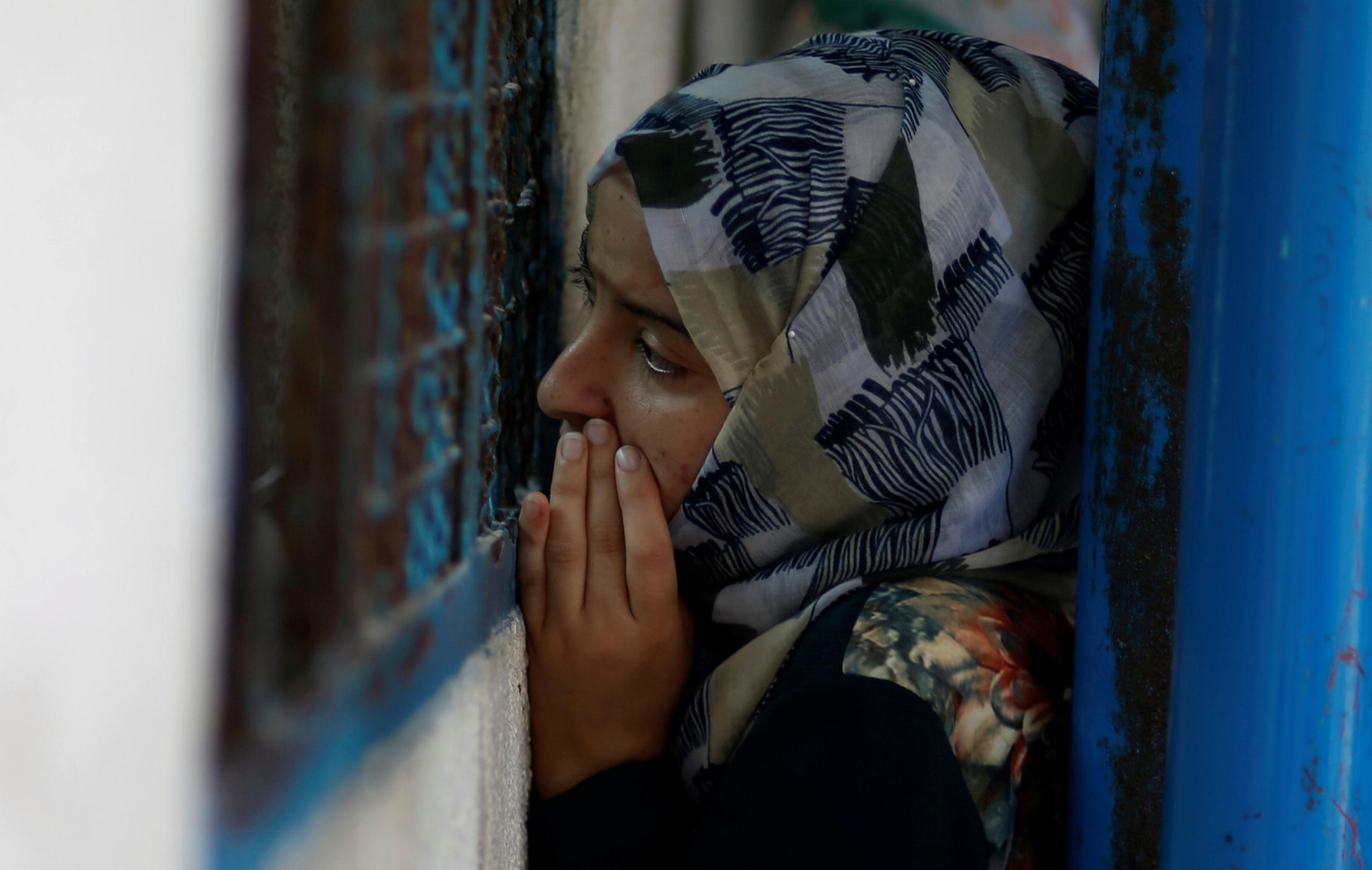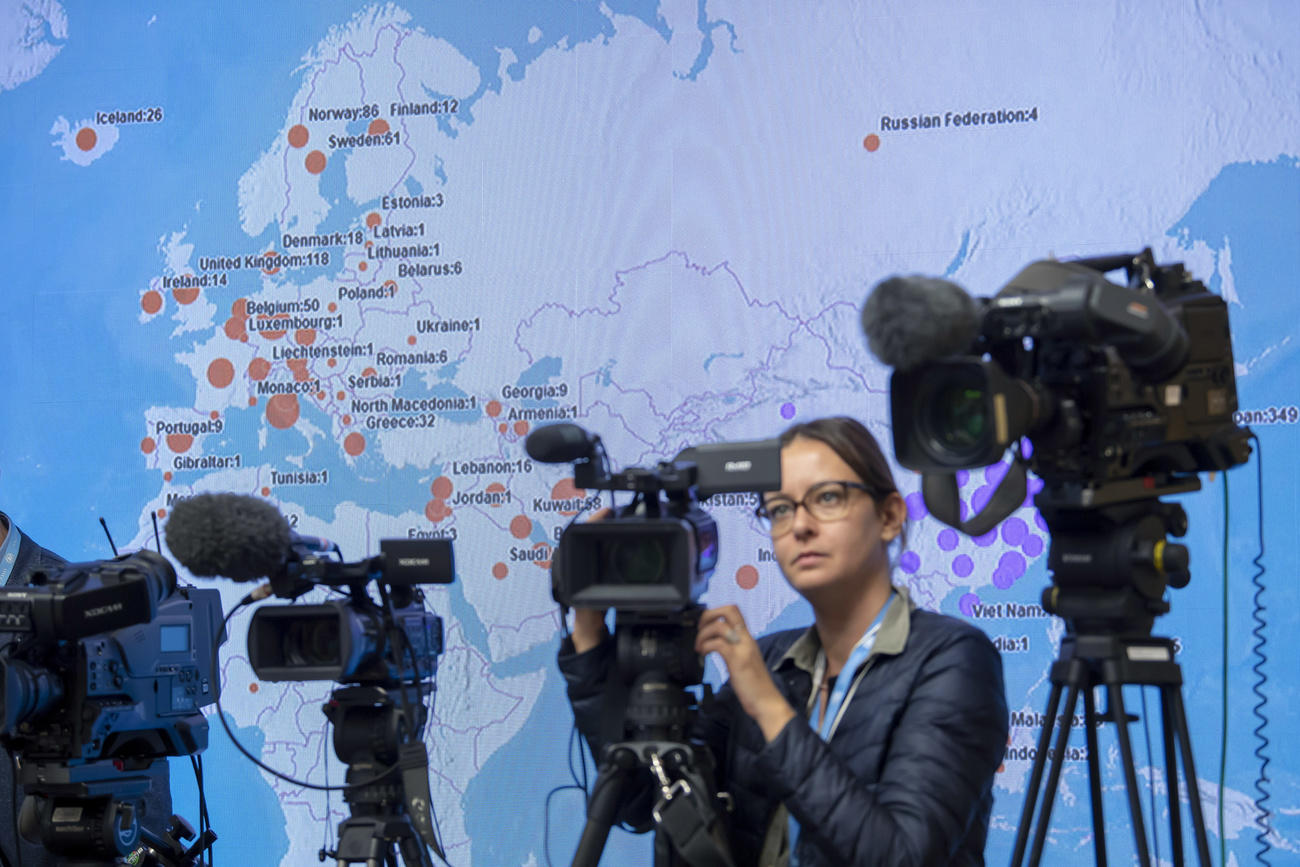Will 2021 bring a new world order?
This Covid winter is only just beginning, and it’s already feeling long, cold, and dreary. Countries across Europe are going back into lockdown, and Switzerland could well be the next, if virus cases continue to rise.
And yet despite this seismic year, and the once unimaginable disruption to all our lives, the world ticks on. Food, for most of us, is being shipped around the world, arriving in our supermarkets on time. Trains are running, mostly; kids are at school, mostly.
There are other, less positive continuities too; war in Syria and Yemen, climate change related drought and potential famine in Africa’s Sahel region, refugee crises caused by conflict and instability from Venezuela to Ethiopia.
Sign up! The latest updates from International Geneva – in your inbox
And sure as night turns into day, the United Nations launches its humanitarian appeal every year, banging the drum for funds to support its aid operations for the coming twelve months. My colleague Daniel Warner has written an interesting piece about this, looking at the dilemma facing usually well-intentioned donor governments now struggling to pay their own massive Covid-19 mitigation costs. How will they foot the UN’s record $35 billion (CHF31 billion) bill? Some, notably the United Kingdom, have already decided not to donate so much.
Our latest Inside Geneva podcast (click on link or banner below) takes a look at this topic too. But our guests, Rein Paulsen of the UN Office for the Coordination of Humanitarian Affairs (OCHA), Julie Billaud, associate professor of anthropology and sociology at Geneva’s Graduate Institute, and Daniel Warner himself, take a more root-and-branch approach.

More
Inside Geneva: the state of humanitarian aid
Lurching from crisis to crisis
A key question we asked: are we even approaching humanitarian aid in the right way? Of course that’s something that’s been discussed for decades, and a topic the humanitarian agencies look at all the time.
But Julie Billaud goes deeper. All governments, including those in donor countries, she suggests, are perpetually in ‘emergency mode’, reacting to crises as and when they appear. But, she points out, “this implies that things normally work well, but occasionally they can go wrong”. Julie sees it differently; the global order is actually wrong, in particular the massive north-south wealth divide, hence we inevitably have crises.
There are many in the UN who might agree with that assessment. But there are very few who think the global order can be changed in time to benefit the 235 million people who will need humanitarian assistance in 2021.
Rein Paulsen does identify some positive new developments in humanitarian work. In Somalia, for example, the UN adopted an ‘anticipatory response’ strategy. With forecasts of both flooding and locust infestations, the UN reacted to support communities, and, he says “close to one and half million people were supported before the crisis hit”. Instead of waiting for lives and livelihoods to be completely disrupted, families were helped in advance to weather the crisis. Less devastating for them, and more cost-effective for the UN, it’s a strategy aid agencies hope to use more often.
More
Build back better
Working on that podcast (and I do hope you’ll listen to our fascinating discussion), reminded me of a phrase I’ve heard repeatedly this year: ‘build back better’. From the UN Secretary General in motivational speeches to member states, to my own friends over a coffee, we hear urgings to use this pandemic crisis to create a world that works better for all of us.
So what does that mean exactly? In an earlier podcast on life after the pandemic, global health specialist Ilona Kickbusch hinted that radical change is already happening. “We’re constantly talking about going back to normal, we must stop that kind of thinking. Our societies, the way we live, our economies, are being restructured even as we speak,” she said.
Way back in April, Médecins Sans Frontières (MSF) doctor and deputy director of Geneva Graduate Institute’s Global Health Centre, Vinh-Kim Nguyen, told me the pandemic would demand “a courage of imagination” from us, and warned that we should prepare for “a new normal”.
So perhaps, although so many of us yearn for our lives back, we should actively consider something different. Perhaps Julie Billaud is right, our global order isn’t really working. The pandemic and its consequences are not a bolt from the blue no one could have prepared for, but a sign that our way of life is maladjusted. For humanitarians, and indeed millions of people on our planet, there is already proof of that in the damage caused by climate change, or in the protracted conflicts which no one seems willing to solve.
In 2021 we will have to face up to the economic cost of the pandemic. Will we retreat further into nationalism, pulling up the financial drawbridges and focusing only on our immediate personal well-being? Or will we seize the opportunity and show that courage of imagination? The quiet festive season we are all expecting should give us time to think about it.

More
Aid crisis: Why giving begins – and may stay – at home

In compliance with the JTI standards
More: SWI swissinfo.ch certified by the Journalism Trust Initiative












You can find an overview of ongoing debates with our journalists here . Please join us!
If you want to start a conversation about a topic raised in this article or want to report factual errors, email us at english@swissinfo.ch.